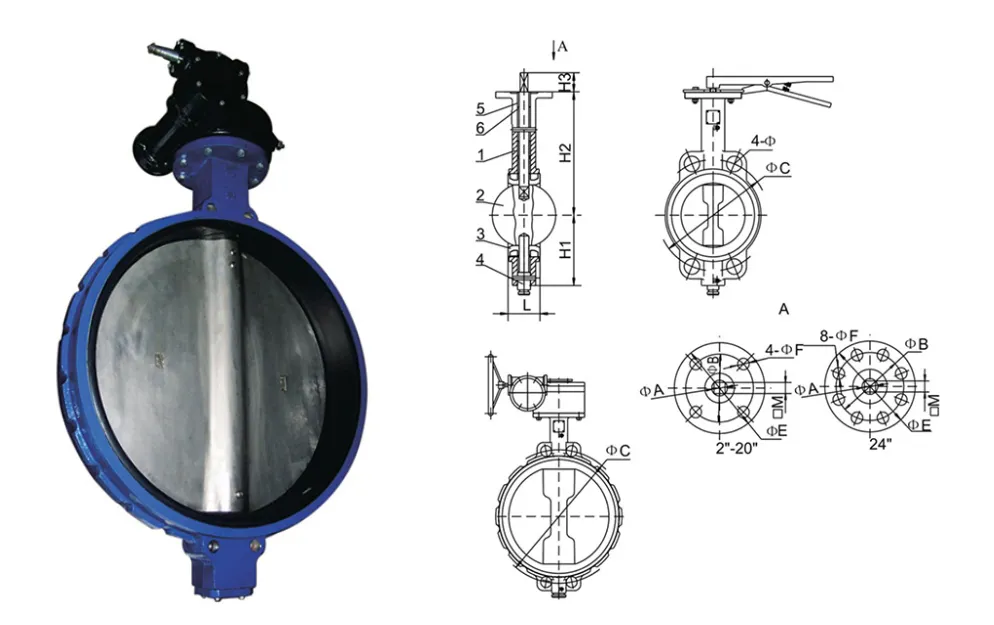Nov . 23, 2024 03:56 Back to list
flange dismantling joint
Understanding Flange Dismantling Joints Importance and Applications
In modern piping systems, the efficiency of maintenance and flexibility in design are paramount. One key component that facilitates these aspects is the flange dismantling joint. This specialized fitting is engineered to allow for easy assembly and disassembly of piping systems without disrupting the overall layout of a network. To understand its significance, we must delve into its construction, functionality, and applications.
What are Flange Dismantling Joints?
Flange dismantling joints are mechanical devices that connect two sections of piping with flanges. They consist of a series of components, including flanges, a sliding sleeve, and a sealing mechanism. The design enables the joint to accommodate axial movement, which can be caused by thermal expansion or contraction, vibrations, or misalignments in the piping system.
The dismantling joint allows for an easy separation of the piping sections for maintenance, repairs, or replacements. Unlike traditional flanged joints that may require significant manpower and equipment to remove and reinstall, flange dismantling joints can be accessed and operated with relative ease, thus streamlining maintenance activities.
Key Features and Benefits
1. Ease of Maintenance As the primary function of a flange dismantling joint is to facilitate quick and efficient maintenance, it greatly reduces downtime. Technicians can easily separate pipe sections without the need for complex tools or prolonged labor.
2. Flexibility and Adjustability The sliding mechanisms within the joint allow for adjustments in pipe alignment, accommodating any potential misalignments that may arise over time or due to shifting ground conditions.
3. Durability and Reliability Constructed from robust materials, these joints are designed to withstand varying pressures and environmental conditions, making them suitable for both indoor and outdoor installations.
flange dismantling joint

Applications in Various Industries
Flange dismantling joints are utilized across various sectors due to their versatility and effectiveness. Some notable applications include
- Water and Wastewater Management In municipal water systems, dismantling joints are crucial for rapid access to pipelines for maintenance and repairs, helping to ensure a reliable water supply.
- Energy Sector In oil and gas facilities, the ability to dismantle and maintain pipe systems quickly is vital. Flange dismantling joints allow for easier access during routine checks and emergency repairs without major disruptions.
- HVAC Systems In heating, ventilation, and air conditioning, dismantling joints help in the maintenance of ductwork and piping, enabling quick inspections and necessary adjustments.
- Industrial Processes Manufacturing plants often utilize these joints in their fluid transfer systems, facilitating routine maintenance that can otherwise lead to significant production downtime.
Conclusion
The flange dismantling joint serves as an essential component in modern piping systems, providing a perfect balance between efficiency, flexibility, and reliability. Its design allows for easy disassembly, which can significantly cut maintenance time and costs across various industries. As technology advances and the need for efficient infrastructure continues to grow, the use of flange dismantling joints can be expected to increase, ensuring that critical systems remain operational with minimal interruption. Whether in water management, energy production, HVAC, or industrial processes, understanding and implementing these joints is key to achieving operational excellence.
Share
-
Reliable Wafer Type Butterfly Valves for Every IndustryNewsJul.25,2025
-
Reliable Flow Control Begins with the Right Ball Check ValveNewsJul.25,2025
-
Precision Flow Control Starts with Quality ValvesNewsJul.25,2025
-
Industrial Flow Control ReliabilityNewsJul.25,2025
-
Engineered for Efficiency Gate Valves That Power Industrial PerformanceNewsJul.25,2025
-
Empowering Infrastructure Through Quality ManufacturingNewsJul.25,2025


